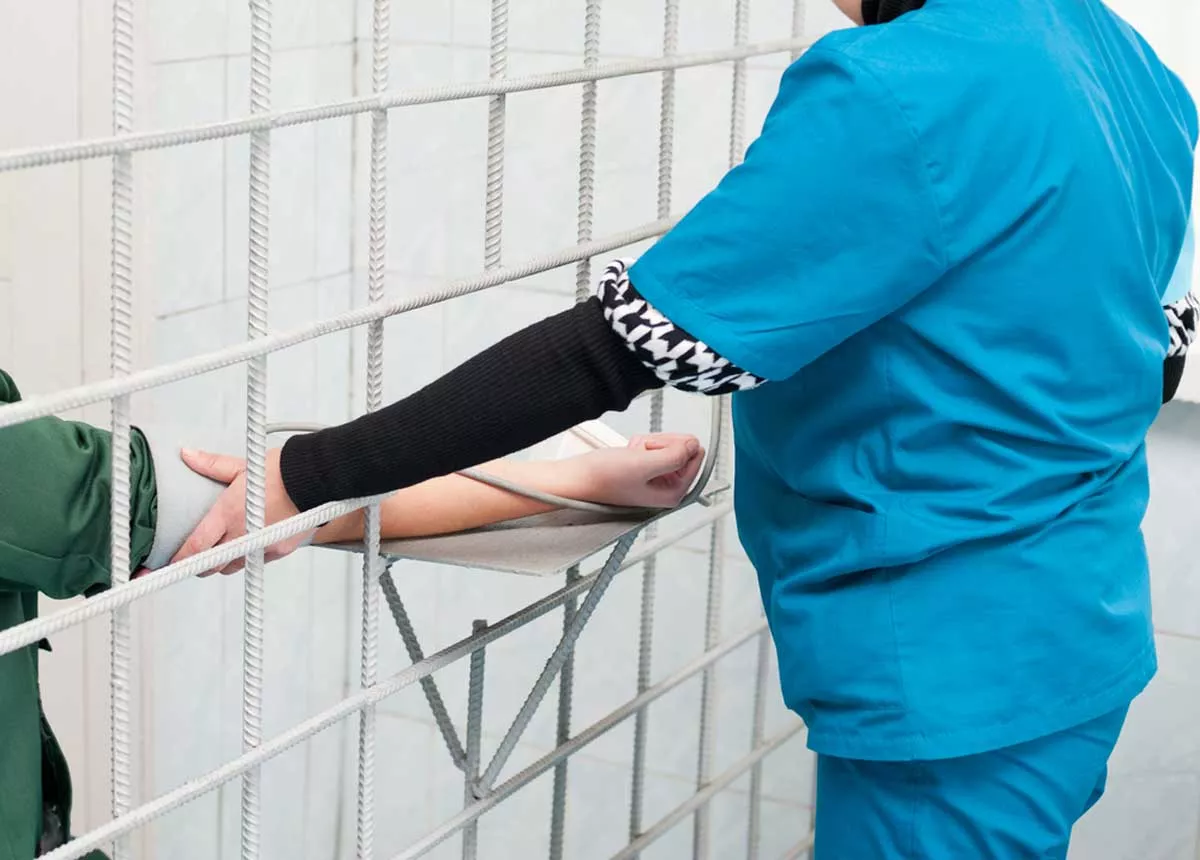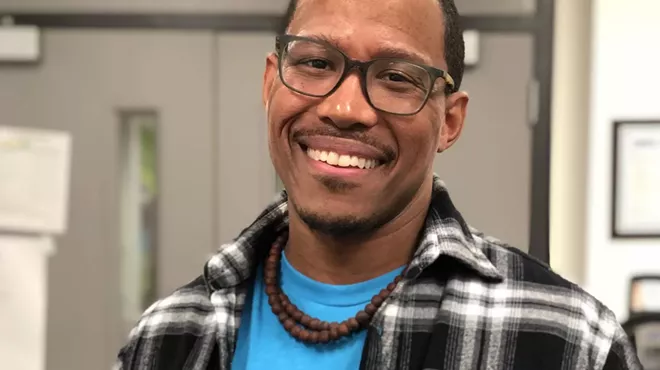Opinion: Michigan’s prison staffing shortage is affecting nurses, too
By reassessing lengthy sentences, Michigan could ease the burden on understaffed facilities


Audio By Carbonatix
[
{
"name": "GPT - Leaderboard - Inline - Content",
"component": "35519556",
"insertPoint": "5th",
"startingPoint": "3",
"requiredCountToDisplay": "3",
"maxInsertions": 100,
"adList": [
{
"adPreset": "LeaderboardInline"
}
]
}
]
The current strain on Michigan’s prison system has been well documented. Data from the State of Michigan shows that the department has lost more than 1,000 corrections officers, with hundreds leaving each year.
Those that reside within the walls of the Michigan Department of Corrections and corrections officers are rightly speaking out about deteriorating conditions in prisons throughout the state. But amid these discussions, one group has been largely overlooked: the nurses who work tirelessly to care for incarcerated individuals.
These professionals face a crisis of their own, one that is intensifying under the weight of the chronic shortages in Michigan’s prisons. As a medical provider with the Michigan Department of Corrections, I want everyone to know that I’ve seen the situation firsthand, and it is clearly time for our legislators to step up and fix this broken system.
Nurses play a vital, often misunderstood role within our prison system. They are the backbone of healthcare services for Michigan's incarcerated population, providing everything from basic medical care to managing chronic illnesses and mental health needs.
But with staffing levels at dangerously low thresholds, these nurses are being stretched to their limits. I personally saw critical care being delayed. Some of our cancer patients were unable to receive their pain medication in a timely manner because there was no nurse available to administer the medicine. Infections that should have been treated in under 24 hours were left to linger. The list goes on.
This is clearly unacceptable. Every individual — regardless of their incarcerated status — deserves to be given high-quality, humane medical care. Our state is falling short on that front.
Michigan’s prison staffing crisis isn’t only affecting the care that nurses can provide, but also their physical and emotional well-being. I saw many of my colleagues break down in tears, overburdened and overworked. It was the first place I had ever worked where employees took extended leave and time off due to stress. Many, however, chose not to take it so they would not be criticized by their fellow employees.
Many nurses struggled with not having the resources to meet their patients’ needs. The emotional toll of knowing you’re falling short despite your best efforts can be overwhelming.
After witnessing and enduring this broken system, many individuals stop working for the Michigan Department of Corrections, including myself.
It is time for our state legislature to start exploring solutions.
They can start with the Second Look Sentencing Act. This bill would allow incarcerated individuals to petition for a reduced sentence after serving a significant portion of their time. Many of these individuals are elderly, no longer pose any risk to society, and have some of the greatest healthcare needs.
By reassessing these lengthy sentences, Michigan could reduce the overall prison population, easing the burden on understaffed facilities. Fewer people in prison would mean fewer patients for nurses with the Department of Corrections, improving working conditions and enabling them to provide better care.
Of course, reducing the prison population through the Second Look Sentencing Act isn’t just a matter of relieving pressure on overworked staff — it’s also about advancing justice. As I’ve seen for myself, many people who are incarcerated have grown, rehabilitated, and deserve the opportunity to be reassessed based on who they are now, not who they were when they were sentenced.
Letting these individuals re-enter society is both an act of humanity and justice — one that just happens to be a practical solution to the crisis we face in Michigan’s correctional system.
It’s time for our legislators to recognize the human cost of the current system and pass the reforms necessary to bring relief — both to the incarcerated individuals and the professionals who care for them. That starts by passing the Second Look Sentencing Act.
Kristen Austin, RN, is a former nurse practitioner with the Michigan Department of Corrections. She is employed by the University of Michigan Sparrow.








